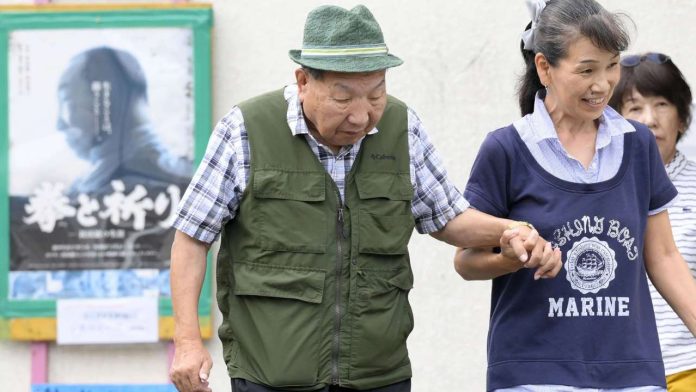In a case that lasted nearly 60 years, the Shizuoka District Court has acquitted former professional boxer Iwao Hakamata. The man spent a record amount of time on death row awaiting execution for a crime he claimed he did not commit.
Iwao Hakamada was arrested in 1966 on charges of robbing and killing his boss, his wife and two children. After 20 days of relentless interrogation, Hakamada confessed to the crime. However, he later claimed in court that he was forced to confess under torture.
The former professional boxer spent 46 years on death row – believed to be the longest time spent on death row of any prisoner in the world – until he was released in 2014 when new evidence emerged and a retrial was scheduled.
Hakamada has consistently maintained his innocence and said investigators coerced him into confessing, while his lawyers have argued that police fabricated evidence.
There was no word on whether prosecutors would appeal the verdict, which was reported by Kyodo news agency and other Japanese media. Hakamada’s lawyers urged prosecutors not to challenge the verdict given his age.
Fabricated evidence
Shizuoka District Court presiding judge Koshi Kunii acknowledged that three pieces of evidence were fabricated, including Hakamada’s “confession” and items of clothing that prosecutors claimed he was wearing at the time of the killings.
His 91-year-old sister Hideko Hakamada, who has tirelessly advocated for her brother, told reporters before the verdict was announced Thursday:
For so long we have fought a battle that has felt endless. But this time, I believe it will be settled.
Prosecutors again demanded the death penalty, but legal experts suggested Hakamada would be acquitted, pointing to four other retrials of death row inmates in postwar Japan that were overturned.
Hakamada, whose physical and mental health had deteriorated during his long incarceration, was not present at Thursday’s ruling and was represented by his sister in the retrial.
The outcome of the case hinged on the reliability of blood-stained clothing that prosecutors said Hakamada was wearing at the time of the murder at a miso factory in central Japan where he was employed.
Everything depended on the DNA test
Scheduling a retrial in March 2023 after years of litigation, Tokyo’s highest court said there was a strong possibility that the clothes were planted by investigators in a miso tank. Defence lawyers said DNA tests on the clothes proved the blood did not belong to Hakamada.
The high court initially decided not to reopen Hakamada’s case, which has become a celebrity for death penalty opponents, but reversed its decision after the apex court ordered it to review the case in 2020.
On Thursday, hundreds of people lined up outside the county courthouse in hopes of getting a seat on the public gallery, while supporters put up signs demanding Hakamada’s acquittal.
Those sentenced to death in Japan – one of two G7 countries along with the United States that retain the death penalty – are notified of their execution by hanging just hours beforehand and are not allowed to talk to their lawyers or families. The last conversation is usually with a Buddhist priest. Boram Jang, East Asia researcher at Amnesty International, said:
We are overjoyed by the court’s decision to exonerate Iwao Hakamada.
The death penalty enjoys strong popular support in Japan. According to a 2019 government survey, 80% of respondents believe the death penalty is “inevitable,” with only 9% in favor of abolishing it.
During the long wait for execution, Hakamata entered The Guinness World Records as the person who spent the longest time on death row. In 2011, his name entered the world history as a symbol of the injustice of the judicial system.
